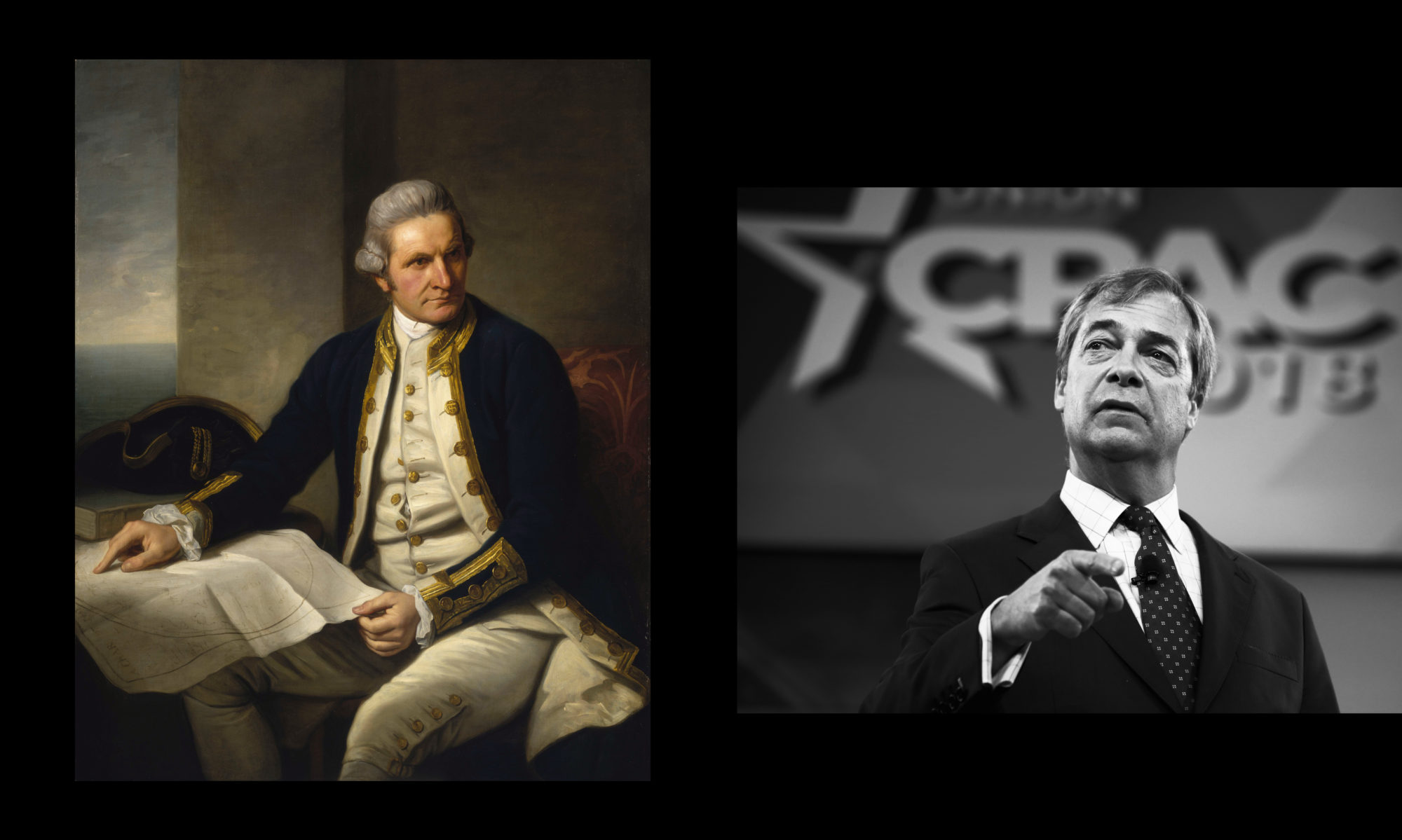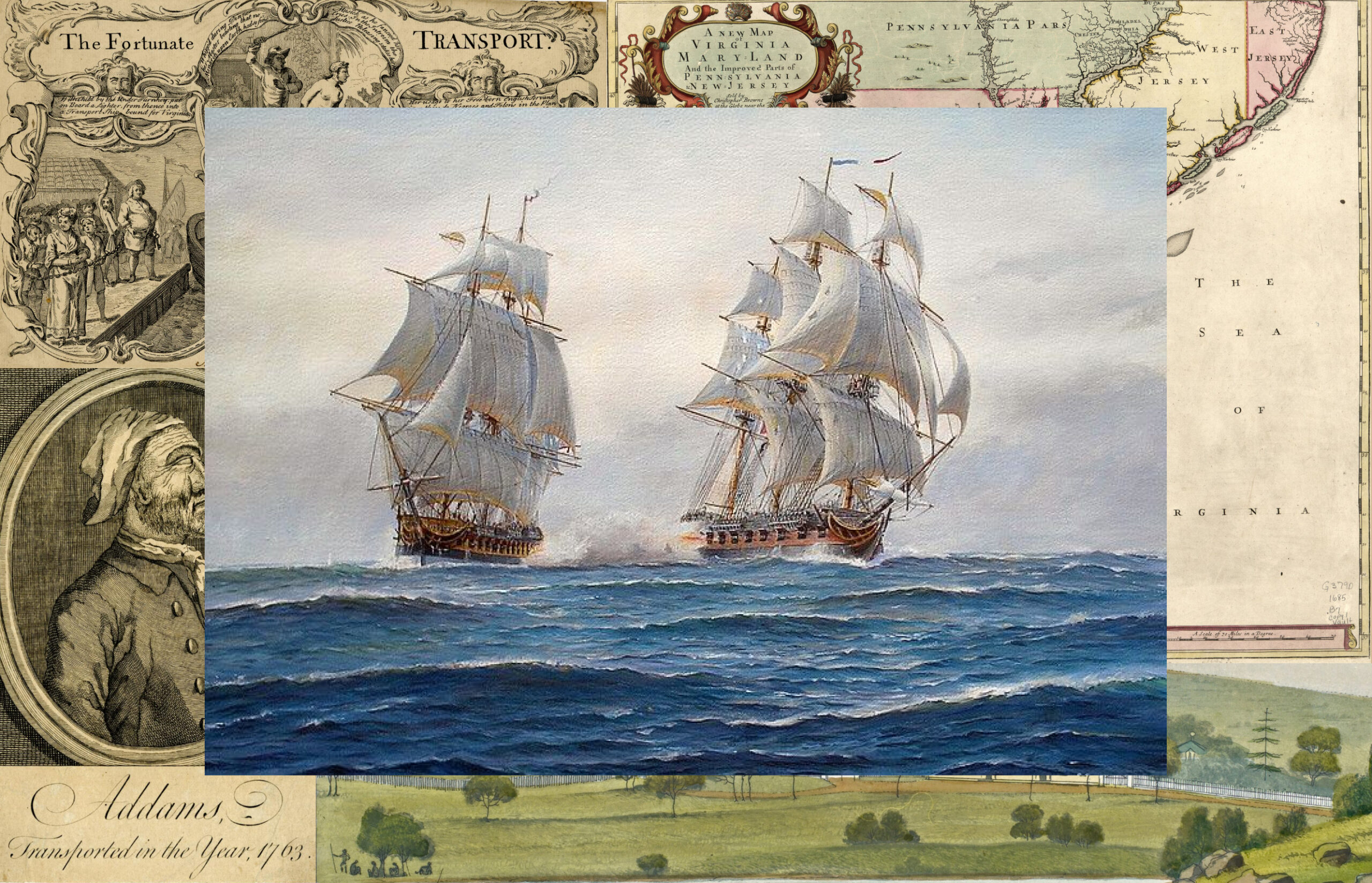This article is part of Project Empire, an editorial series designed to explore the history of the British Empire. See the full collection here »
The question — “what part does imperialism play in the 2016 majority vote for Brexit?” — has become a small obsession with me. I voted Remain, though with some reluctance, because I thought, and still think, that breaking out of the single market was a mistake on the economic level. It will be hard to make trade deals with non-EU countries (and with the EU itself) which could give the same advantages as the single market did.
But it was politically correct, in the old sense of the phrase. I did not think that any UK government would allow the country to be dragged down the road to greater integration, membership of the Euro and ultimately the construction of a United States of Europe. That meant I could tolerate continued membership of the EU, secure that national sovereignty would remain.
Yet now, with Britain out of the EU after years of political turmoil, it seems clearer that Brexit was the right decision, even assuming a substantial economic downside. That became clearer, because of the attitude taken by some — not all — of the Remainers to the half of their fellow citizens who voted Leave.
One main explanation was offered. That was, that the Leavers were in the thrall of an imperialist nostalgia, falsely believing that Britain was still a world power and did not need the lesser nations of the EU. Often included in this was that Leavers hated immigration, and that at least some, if not all of them, were racist. Another theme within this, as two or three people separately told me (more in pity than in anger), was that the referendum vote went the way it did because Leavers voted emotionally, while Remainers voted rationally.
This last theme was a good deal more nauseating than others. It implied that those who voted Leave were deprived of rational thought, and those who were not — the Remainers — had been unjustly deprived of their right to decide. They had suffered a serious blow to their view of what should be the proper order of Britain’s politics in the years ahead.
It was this sense of injustice which fuelled the strong movement for a second referendum. As had happened in other states, like neighbouring Ireland, the idea was that the majority — certainly a narrow one — was a mistake by ill-informed, emotionally driven people, and that they should have been told to vote again, but correctly. This drive was more important than understanding why the majority voted to leave the EU, after nearly half a century of membership. It wholly ignored the fact that had there been a fifty-two percent majority for Remain, a second referendum movement — led, say, by Nigel Farage — would have been regarded as an outrage.
Opinion polls should have given a basis for understanding. An Ashcroft poll, taken soon after the 2016 vote, found the main reason people voted Brexit was the principle that “decisions about the UK should be taken in the UK.” In second place was that Brexit “offered the best chance for the UK to regain control over immigration and its own borders”, while in third place was the thought that “remaining meant little or no choice about how the EU expanded its membership or its powers.”
These three reasons were differing expressions of the same demand — that political decisions should be taken by an institution, a parliament, over which the people have some control, and which is comprehensible. National parliaments in democracies offer control a vote can give when aggregated with millions of others: that is, it puts a premium on debate, advocacy and an open civil society in which all opinions are heard, and where movements — both organised and un-organised — can grow.
It is an irony that, in the West and especially in Britain, “imperialism” should be seen as a live problem. Ironic, since imperialism, is, in its former heartlands, in full retreat. The problem is not that the former colonial powers are itching to take back what they lost in the de-colonising period. It is the opposite: they do not wish to be involved, or only minimally, through aid projects. When, in the face of obvious failure of the Mozambique military and police to withstand attacks by Islamist forces in the country’s north in late March, the former colonial power agreed to help — it sent just 60 Portuguese soldiers, a medium-sized platoon, to support the country’s army.
RECOMMENDED
The Criminal Origins of the United States of America
by Anthony Vaver
The Brutality of British Slavery Knew No Bounds
by Trevor Burnard
Could the EU become a benign imperial power? Unlikely: the EU is not a democracy; arguably, it was never meant to be. Its aim, wholly laudable, was to make war in Europe unthinkable, especially between France and Germany. In this latter aim, it has succeeded: the EU gave both countries, the two largest in the EU, enough leverage over policy and power to satisfy successive national leaders — while at the same time ensuring that national power remain supreme, in spite of the rhetoric that it should be merged into a more integrated polity, at the European level. It did not, as we know, stop wars in Europe, as the carnage in the Balkans showed: for that, US intervention, in 1995 after four years of refusal to commit, was necessary.
The EU had imperial aspirations of a certain sort. Robert Cooper, a British former senior official in the EU, proposed a ‘postmodern’ European empire, based on the achievement of peace and order between nations, though with an ability to use force against terrorists and aggressive opponents, coupled with extensive consultation with member states and assistance to the unstable regions. Yet the EU cannot achieve enough integration to allow it to act as a nation state, and is unlikely to do so soon — more because of its flailing response to the European demand for vaccination. The plans for an EU military force have so far remained on paper, with little possibility, during and in the aftermath of the pandemic, of the many billions of euros required to build a credible force being agreed. Only a third of the EU states pay the agreed two per cent of GDP for defence, a proportion which does not include Germany.
The late Peter Mair, an Irish-born political scientist who made the decline of political parties the centre of his work, wrote presciently in Ruling the Void that “we know that a failure to allow for opposition within the polity is likely to lead either (a) to the elimination of meaningful opposition, and to more or less total submission, or (b) to the mobilization of an opposition of principle against the polity—to anti-European opposition and to Euroscepticism. And indeed, this development is also reaching down into the domestic sphere, where the growing weight of the EU, and its indirect impact on national politics, also helps to foster democratic deficits, and hence also limits the scope for classical opposition at the national level.”
The growing impotence of parties, including those which still profess a socialist or social democratic identity, has meant that globalisation has trumped ideology. Leftist parties, especially in the US, Britain and Germany, while continuing their welfare and health spending, have shaped their policies to accommodate a global market in goods and services — policies which could and did mean a growth in national wealth. But the pursuit of such policies has increasingly meant a stagnation of working and lower middle-class incomes. Naturally, the growth in inequality has become increasingly vast.
One thing these policies were not, was imperial. Britain, like other medium-sized democracies, did the opposite of what they had done as empires: in imperial times, France, the Netherlands, Spain, Portugal, Germany, Italy, as well as Britain — shaped the world, or parts of it. But by the late twentieth century, they were shaped by it, and had to adapt.
The response, in Brexit and other movements (labelled “populist”), was for a repatriation of production and services, and of political accountability. When asked by opinion pollsters, a small majority of the British said they were proud of the empire: proud, that is, of an image of empire, not all false, of a system which improved the lives and life chances of the colonised. But the British are not the proudest of their empire. The Dutch, by some margin — fifty per cent compared to thirty two percent — express more pride in their empire. Fewer of the French are proud of their empire — twenty-six per cent — but also fewer are ashamed of it, fourteen percent compared to the British nineteen per cent.
The US, which because of its origins has always denied imperial status, is indeed an empire of a certain kind — one which does not usually take over states, but has the strength to direct their polities and economies. Yet now the US withdraws from intervention: a policy started, sporadically, by Barack Obama, ramped up (to little real effect) by Donald Trump, and likely continued by Joe Biden. Niall Ferguson wrote, in 2004, that “the United States has acquired an empire, but Americans themselves lack the imperial cast of mind…despite occasional flashes of self-knowledge, they have remained absent-minded — or rather, in denial — about their imperial power all along. Consequently, and very regrettably, it is quite conceivable that their empire could unravel as swiftly as the equally ‘anti-imperial’ empire which was the Soviet Union.”
Empire, as the many historians of it stress, has been a dominant form of governance for much of recorded history. Only in the twentieth century, and then only in the latter half of it, did it retreat into insignificance, as the once-vast imperial powers of Europe divested themselves of their possessions — bloodily, in the cases of France and the Netherlands, as they fought to keep what they had: less so, in the case of the British, who in most cases pulled the Union Jacks down with a mixture of regret and relief — so costly had empire become to a state which was no longer rich, and needed to finance a large welfare state.
Could that mean a world in which empire was seen, everywhere, as an anachronism? A world where nation states could peacefully cooperate — or if at loggerheads, settle their disputes through a medium like the United Nations? Could the world get by without a policeman-hegemon?
Not without much conflict: quite likely, more conflict. Many of the former imperial possessions, especially in Africa, have suffered deepening poverty and incessant wars since they declared national independence: the necessary conditions for a successful economy — an efficient public sector, a non-corrupt bureaucracy, the rule of law and security of investment, domestic and foreign and large investments in education, health and infrastructure are all missing. Here and there, voices are heard arguing that the former colonial states should adopt a ‘neo-colonialist’ policy — of taking temporary charge, with the agreement of the state’s government, of parts of the administration — in order to combat corruption, speed up development and ensure security. As this is written, two emergencies in former colonial states — Mozambique (formerly part of the Portuguese Empire) and Burma/Myanmar (ex-British Empire) – show how fragile both democracy and security are, and how easily they can be destroyed.
China, with Russia, are the would-be imperialist powers today — Russia, in its persistent efforts to win back control of the two former Soviet states of Ukraine and Belarus, and to continue domination of the former Soviet space; China with global ambitions. Both are strongly authoritarian states, with increasingly aggressive policies and, in China’s case, a determination to stamp out Uighur culture, bring Hong Kong to heel by crushing its democratic institutions, continue what had been a murderous possession of Tibet and maintain constant pressure on Taiwan. As the democratic states grasp the nature of the Chinese-Russian menace, they look for solutions beyond trade and personal sanctions. Presently, plans for an active group of democratic states are now being rehearsed, both to reassert the values of open societies and to show a united front against propaganda messages that state, as President Vladimir Putin told the Financial Times in June 2019, “liberalism is obsolete”. Xi Jinping, too, echoed similar sentiments and has stated that: “the values of liberal democracy are by definition the enemy. The appeal of free media, independent judiciary and pluralistic civil society are discredited wherever possible. In fact, since Mr Xi came to power, public discussion of these values has become taboo in China.”
Empire remains alive, but not in the hearts and minds of a British, or any Western, electorate. The message of Brexit was a reassertion of democratic nation statehood: a recognition that for the present it remains the best bet in an unstable world.



